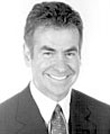United Airlines has officially dethroned PepsiCo for public relations disaster of the week, after a widely-circulated series of graphic videos showed a passenger being manhandled and forcibly removed from a Sunday flight at Chicago’s O’Hare Airport.
Personnel working the overbooked United flight 3411, which was en route to Louisville, discovered they needed to open up four seats at the last minute for embarking crew members. After fruitlessly attempting to offer passengers financial compensation, hotel accommodations and a rebooked Louisville flight the following afternoon, an airline supervisor began randomly selecting passengers for removal.
Three passengers from the sold-out flight complied, but a fourth, a 69-year-old Elizabethtown, KY doctor named David Dao, refused, claiming he had patients waiting to see him the following morning. In response, personnel contacted Department of Aviation enforcement officers, who yanked a screaming Dao from his seat, causing his face to strike an armrest. Officers then pulled the man’s bloodied, limp body down the aisle and out of the cabin. Dao, who specializes in internal medicine and is a father of five, was later admitted to a hospital for his injuries.
So much for flying the “friendly skies.”
Videos of the graphic incident were soon posted to YouTube, and predictably, they went viral, provoking global outrage. Scores of consumers swore off the airline, with some even posting photos of their newly-shredded United credit cards and frequent flyer member cards. The Department of Aviation officer responsible for injuring Dao has since been suspended as the matter moves under internal review. The Department of Transportation said it is also reviewing whether United obeyed consumer protection laws in its handling of the incident.
Initially, United avoided standard apology theater in favor of doubling down amid the PR fallout, claiming that employees had followed the proper protocol and even blaming the victim for the events that transpired.
United Airlines CEO Oscar Munoz first issued a tone-deaf statement via Twitter, expressing regret that it was forced to “re-accommodate” its passengers, a puzzling euphemism for forcibly dragging someone from a plane.
|
|
“They need to review their protocols, because clearly the ones they have didn’t work very well,” said Brian Ellis, executive vice president of Minneapolis-based PR agency Padilla. “Perhaps they should have resolved the seat issue before everyone got on the plane. Or perhaps they need to revisit what they are willing to offer consumers when they have to bump them off to make room for crews. Getting bumped for another paying customer is one thing, getting bumped to make room for a crew member is a totally different thing and points to poor asset management practices. This issue should never be resolved by dragging a paying customer off the plane.”
Munoz’s statement was so ineffectual it ended up becoming part of the story, with late-night comedian Jimmy Kimmel on Monday referring to the response as “sanitized, say-nothing, take no responsibility, corporate BS-speak.”
Amazingly, Munoz managed to make the situation even worse in a Monday emailed statement to employees, where the executive referred to Dao as “disruptive and belligerent,” words that only stoked the public’s ire and ensured the story continued rotations in the news cycle.
|
|
“United’s argument that they are legally entitled to remove the passenger may be right, but being right in the court of law doesn’t work to win in the court of public opinion,” said Ronn Torossian, founder and CEO of 5W Public Relations. “The images of the passenger being dragged off a plane are gross, and United won’t win any points from anyone with their statement. They need to apologize to the customer and the public, and the whole airline industry needs to work on becoming more customer friendly.”
Several media outlets reported that the crisis had also hit United’s stock price, causing it to drop more than three percent by Tuesday a.m., or nearly $1 billion in value. United is the third-largest airline in the country by passenger traffic.
Ironically, Munoz, who took the United president and CEO title in 2015, was named “Communicator of the Year” by PRWeek at that trade publisher’s signature awards ceremony in March. The untimely accolade provoked the publication to issue a mea culpa of its own in its editorial pages today, where it claimed that if the publication “was choosing its Communicator of the Year now, we would not be awarding it to Oscar Munoz.”
This crisis also comes just weeks after United temporarily barred two teenage girls from boarding a Minneapolis-bound flight for wearing leggings, a clothing item that allegedly violates the company’s dress code policy for “pass travelers,” a free-flying program for United employees and their relatives.
“My gut tells me everyone that is flying United these next few weeks will be worried about this happening to them,” Ellis said.
By Tuesday afternoon, a third attempt to quell public discontent was made, one in which Munoz appeared to have finally changed his tune. The executive in an updated statement said the airline would conduct “a thorough review” of its policies, and that it “will work to make it right.” Munoz also said he continues “to be disturbed by what happened” and extends his “deepest apologies.”
|
|
“If it was my agency counseling United, we would recommend they prepare a full report of the incident, how it got away from them and take full responsibility,” said Michael Fineman, president of San Francisco’s Fineman PR.
Fineman said that report would also lay out how United intends to make good on its promises regarding the ejected passenger, and would be augmented with a larger plan demonstrating new company guidelines and policies, especially new employee training programs to ensure a similar incident never occurs.
“It has been reported that United’s reputation has been in the tank for some time; this could be a very bad-for-business tipping point. Were they to provide the report and plan I mention above, it could be seen as an acknowledgement of marketplace dissatisfaction and a new beginning in how they will treat their customers,” Fineman said. “Then, of course, United would need to demonstrate genuine progress and show that progress through independent audits of the airline’s customer service.”
|
|
“With no new news to feed it, this crisis will go away quickly,” said Fraser Seitel, Emerald Partners president, NYU communications professor and O’Dwyer’s contributing editor.
Seitel said that while United should maintain its current overbooking policy — because, according to him, “people lie about traveling” — the company should change its policy so as to handle passengers slated for removal before they board, never expelling riders once they’ve been admitted onto the plane. Seitel also said Munoz should be the one to announce these changes, and should then “shut up and let the crisis dissolve,” because it will on its own eventually.
“And I predict, despite what most other crisis management geniuses have said, United won’t lose riders, will see its stock come back from today's initial loss, and people will move on to the next Kardashian/Trump/O’Reilly crisis,” Seitel said.

 Brian Ellis
Brian Ellis Ronn Torossian
Ronn Torossian Michael Fineman
Michael Fineman Fraser Seitel
Fraser Seitel
 There’s a fine line between newsjacking and taking advantage, aka ambulance chasing. Our job as PR professionals is to tread it carefully.
There’s a fine line between newsjacking and taking advantage, aka ambulance chasing. Our job as PR professionals is to tread it carefully. PR firms need to be mindful of ways their work product may be protected by the attorney-client privilege whenever working with a client’s internal legal team or its external legal counsel.
PR firms need to be mindful of ways their work product may be protected by the attorney-client privilege whenever working with a client’s internal legal team or its external legal counsel. Manuel Rocha, former US ambassador and intenational business advisor to LLYC, plans to plead guilty to charges that he was a secret agent for Cuba.
Manuel Rocha, former US ambassador and intenational business advisor to LLYC, plans to plead guilty to charges that he was a secret agent for Cuba. CEO mentoring is an often-overlooked aspect of why CEOs are able to make good decisions, and sometimes make bad ones—all of which intersects with the role and duties of a board.
CEO mentoring is an often-overlooked aspect of why CEOs are able to make good decisions, and sometimes make bad ones—all of which intersects with the role and duties of a board.  How organizations can anticipate, prepare and respond to crises in an increasingly complex world where a convergent landscape of global challenges, threats and risks seem to arrive at an unrelenting pace.
How organizations can anticipate, prepare and respond to crises in an increasingly complex world where a convergent landscape of global challenges, threats and risks seem to arrive at an unrelenting pace.


 Have a comment? Send it to
Have a comment? Send it to 
No comments have been submitted for this story yet.